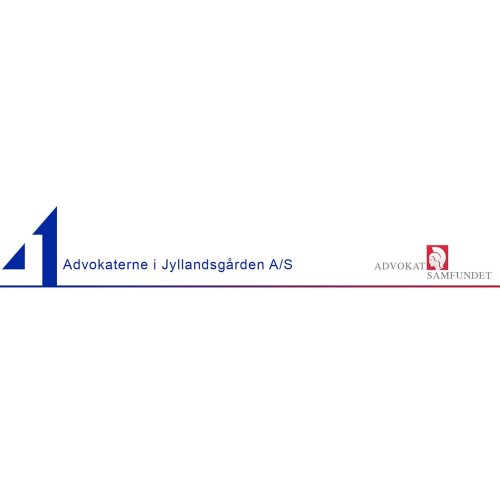Best Equity Capital Markets Lawyers in Aarhus C
Share your needs with us, get contacted by law firms.
Free. Takes 2 min.
List of the best lawyers in Aarhus C, Denmark
About Equity Capital Markets Law in Aarhus C, Denmark
Equity Capital Markets (ECM) law refers to the legal framework that governs the issuance, buying, and selling of equity securities such as shares on the capital markets. In Aarhus C, Denmark, ECM activities are influenced by both Danish national laws and EU financial regulations. Aarhus C, being a key city in Denmark with a vibrant business community, witnesses various ECM transactions, such as initial public offerings (IPOs), rights issues, and private placements. Businesses, investors, and financial institutions in Aarhus C rely on ECM laws to ensure activities are transparent, fair, and compliant with the relevant rules set by regulators.
Why You May Need a Lawyer
Equity Capital Markets transactions involve complex legal and regulatory requirements. Here are some common situations where seeking a lawyer's advice is beneficial:
- Preparing for or conducting an initial public offering (IPO)
- Advising on rights issues, private placements, or secondary offerings
- Drafting and reviewing legal documentation, including prospectuses and underwriting agreements
- Navigating compliance with Danish FSA and EU regulations
- Managing disclosure obligations and investor communications
- Structuring equity-related transactions for startups or growing enterprises
- Resolving disputes between shareholders or with regulatory authorities
- Ensuring corporate governance requirements are met
A lawyer offers critical support to ensure you meet all obligations, avoid costly mistakes, and maximize the success of your capital market transactions.
Local Laws Overview
Equity Capital Markets in Aarhus C are governed by a set of Danish and European regulations, with the principal law being the Capital Markets Act (Kapitalmarkedsloven). The Danish Financial Supervisory Authority (Finanstilsynet) oversees market conduct, transparency, and investor protection. Key regulations include:
- The Capital Markets Act: Establishes general requirements for issuers, public offers, and prospectus obligations.
- EU Prospectus Regulation: Dictates when and how a prospectus must be published for new issues or admissions to trading.
- Market Abuse Regulation: Prohibits insider dealing and market manipulation, requiring timely disclosure of inside information.
- Disclosure Requirements: Sets rules on major shareholdings and ongoing obligations for listed companies.
- Corporate Governance Codes: Affect the duties of boards and the rights of shareholders.
Transactions must be compliant with both Danish law and applicable EU directives and regulations, making legal guidance essential during any ECM activity.
Frequently Asked Questions
What is an initial public offering (IPO) in Denmark?
An IPO is when a private company offers shares to the public on a regulated stock exchange for the first time. In Denmark, this process is regulated to ensure protection for investors and market integrity.
Do I need to publish a prospectus for all share offerings?
Generally, a prospectus is required for public offerings or listings of shares, unless a specific exemption applies. The rules are set by EU Prospectus Regulation and national law.
Who regulates equity capital markets in Aarhus C, Denmark?
The Danish Financial Supervisory Authority (Finanstilsynet) regulates capital market activity, along with the relevant stock exchanges such as Nasdaq Copenhagen.
Are there minimum capital requirements for companies seeking to list shares?
Yes, minimum capital and governance requirements apply for listing shares on a regulated market. These can vary based on the type of market and company structure.
What are market abuse rules and how do they affect me?
Market abuse rules are designed to prevent insider trading and market manipulation. Companies and individuals must adhere to strict disclosure obligations and conduct rules.
How do I handle disclosure of inside information?
Listed companies must disclose inside information to the public as soon as possible to ensure a level playing field for all investors. Detailed procedures are required by law.
Can startups access equity capital markets in Aarhus C?
Yes, startups may access equity capital markets through regulated exchanges or growth platforms, subject to fulfilling certain requirements and disclosures.
What role does a lawyer play in ECM transactions?
Lawyers provide strategic advice, assist with document preparation, ensure regulatory compliance, and manage communications with authorities and exchanges.
What are the tax implications of ECM transactions?
Equity transactions can have significant tax implications for both companies and investors. Consulting legal and tax advisors is essential to understand liabilities and optimize structures.
How do I resolve disputes related to equity offerings or shareholder issues?
Disputes may be resolved through negotiation, mediation, or legal proceedings. Lawyers can provide advice on dispute resolution strategies and represent interests in court if needed.
Additional Resources
If you need further information or support, consider contacting these resources:
- Danish Financial Supervisory Authority (Finanstilsynet) - The main regulatory body for capital markets
- Nasdaq Copenhagen - The main stock exchange in Denmark
- Danish Business Authority (Erhvervsstyrelsen) - Offers company registration and guidance
- Local business development centers in Aarhus C - Provide support for startups and scale-ups
- Professional legal associations - Can connect you with experienced ECM lawyers
Next Steps
If you are considering any Equity Capital Markets activity in Aarhus C, Denmark, evaluating your legal needs is crucial. Here is how to proceed:
- Define the scope of your project, such as IPO, private placement, or other offering.
- Gather preliminary documents and information about your company or investment.
- Consult with a lawyer who specializes in Equity Capital Markets to assess legal requirements and risks.
- Work with your lawyer to prepare necessary documentation, filings, and regulatory submissions.
- Ensure ongoing compliance with disclosure, transparency, and governance obligations after the transaction.
Taking these steps with professional legal guidance will help you navigate complex processes, minimize risks, and achieve your capital market objectives efficiently and according to law.
Lawzana helps you find the best lawyers and law firms in Aarhus C through a curated and pre-screened list of qualified legal professionals. Our platform offers rankings and detailed profiles of attorneys and law firms, allowing you to compare based on practice areas, including Equity Capital Markets, experience, and client feedback.
Each profile includes a description of the firm's areas of practice, client reviews, team members and partners, year of establishment, spoken languages, office locations, contact information, social media presence, and any published articles or resources. Most firms on our platform speak English and are experienced in both local and international legal matters.
Get a quote from top-rated law firms in Aarhus C, Denmark — quickly, securely, and without unnecessary hassle.
Disclaimer:
The information provided on this page is for general informational purposes only and does not constitute legal advice. While we strive to ensure the accuracy and relevance of the content, legal information may change over time, and interpretations of the law can vary. You should always consult with a qualified legal professional for advice specific to your situation.
We disclaim all liability for actions taken or not taken based on the content of this page. If you believe any information is incorrect or outdated, please contact us, and we will review and update it where appropriate.

















